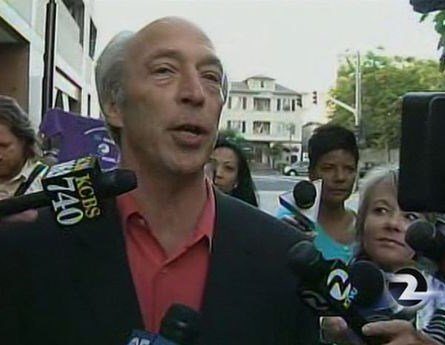Labor & Economy
BART’s Top Negotiator Living High While Avoiding Talks

BART’s 60-day cooling off period is now heating up – but not in a good way.
When the Governor requested a 60-day cooling off period in Bay Area Rapid Transit negotiations in early August, there was a danger that this action would lessen pressure to reach an agreement. Unfortunately, this is exactly what has happened. In support of the cooling off period, BART management had told the Governor back in August that this would enable “us to continue negotiating…. The public should not be deprived of this essential public service unless all alternatives to avoid a work stoppage have been utilized.”
This sounds like common sense: Give the parties more time to avoid a crippling strike that surely no one on either side wants. But no sooner had the 60 days started than management reconsidered its position on utilizing “all alternatives” to avoid a strike. Instead of bargaining around the clock, management steadfastly refused to meet, and repeatedly stymied efforts by state-appointed mediators to schedule bargaining sessions. BART management informed its unions that it had already made its “best, last and final offer.” There was therefore no reason to negotiate, explained BART’s expensive Ohio-based negotiator Tom Hock, as further sessions would “not be fruitful.”
Hock, who is being paid almost $400,000 or about $3,400 per day, was unavailable for almost a third of the 30-day contract extension period in July and he refused to meet the unions during the first month or so of the 60-day cooling off period. Hock found nothing in the injunction that “specifies any required meeting schedule.” Instead, it required “only that the parties maintain the status quo” — i.e., avoid a strike or lockout. When the 60-day cooling off period started, his position appeared to be, “See you on day 40!”
On Thursday, the unions were told, yet again, that Hock was “unavailable.”
But Hock has been busy living it up at BART’s expense. By mid-June, he had billed BART for over $36,000 in expenses – including first class airfares, fine dinners and wines, limo services, rented BMWs, even $500 for a retirement party for a Long Beach transit authority manager.
BART management has approached the prospect of another strike in an alarmingly cavalier manner. It has warned commuters to prepare for a long strike, even as it knows that the Governor would never tolerate this. Management appears to believe that winning a contract that drives down labor costs is a positive outcome, even if it takes two disruptive strikes that inconvenience hundreds of thousands of commuters and cost businesses tens of millions of dollars to get this result. While much of the attention has been placed on Tom Hoch, the real blame for this fiasco lies with the Board of Directors. They knew what they were getting when they hired Hoch – whose record for provoking transit strikes is virtually unparalleled – and he has been working on their instruction.
BART’s Fuzzy Math
At the few face-to-face negotiations that have taken place this week, real progress has been made on benefits, with a tentative agreement on pensions and movement on health care, although management is still presenting a regressive proposal. On wages, the unions have made significant movement this week. They have offered BART management three separate proposals, the latest providing increases of 3.75 percent in the first two years and four percent in the third year.
As of Thursday afternoon, BART management was not budging from its 1.78 percent offer for the first three years (wrongly and repeatedly reported in the media as 2.5 percent), with a 2.03 percent increase in the fourth and final year – almost no movement whatsoever on their base wage proposal. True, this represented movement over their previous “this is our final offer – take it or leave it” position, but it barely represents even an incremental move.
The federal mediator who is facilitating discussions wants significant evidence that two the sides are moving towards a comprehensive deal by the end of this week – probably in part because of the governor’s timetable for a special session of the legislature to stave off a strike – but at the moment, we are still some distance away from that, in large part because of management’s refusal to move significantly on wages. Worse still, for most of this week it has not even been clear who on the management team has the authority to make a deal on wages. First, somewhat amazingly, chief negotiator Tom Hock said that he did not; then he said that he did; then by Thursday, he was no longer available to participate in negotiations, and the unions have not been told when he will return.
Instead of negotiating seriously with the unions to reach an agreement, BART management recently announced an ill-considered $21 million contingency plan to train managers to run trains during the strike. The difference between the union and management proposals on wages and benefits, meanwhile, may be as low as $38 million.
Governor Brown may yet intervene to prevent a second strike. He will certainly not allow a prolonged stoppage. But he would need two-thirds support in both chambers, including that of a few Republicans, and several legislators may be unavailable. If he does intervene, however, he should not simply reward BART management’s willful obstructionism and intransigence at the bargaining table, which may already have squandered the opportunity to reach agreement during the 60-day cooling off period.
(John Logan is Professor and Director of Labor and Employment Studies at San Francisco State University. His post first appeared on BeyondChron and is republished with permission.)

-

 Latest NewsFebruary 3, 2026
Latest NewsFebruary 3, 2026Amid the Violent Minnesota Raids, ICE Arrests Over 100 Refugees, Ships Many to Texas
-

 Featured VideoFebruary 4, 2026
Featured VideoFebruary 4, 2026Protesters Turn to Economic Disruption to Fight ICE
-

 Column - State of InequalityFebruary 5, 2026
Column - State of InequalityFebruary 5, 2026Lawsuits Push Back on Trump’s Attack on Child Care
-

 Column - California UncoveredFebruary 6, 2026
Column - California UncoveredFebruary 6, 2026What It’s Like On the Front Line as Health Care Cuts Start to Hit
-

 The SlickFebruary 10, 2026
The SlickFebruary 10, 2026New Mexico Again Debates Greenhouse Gas Reductions as Snow Melts
-

 Latest NewsFebruary 12, 2026
Latest NewsFebruary 12, 2026Trump Administration ‘Wanted to Use Us as a Trophy,’ Says School Board Member Arrested Over Church Protest
-

 Latest NewsFebruary 10, 2026
Latest NewsFebruary 10, 2026Louisiana Bets Big on ‘Blue Ammonia.’ Communities Along Cancer Alley Brace for the Cost.
-

 Column - State of InequalityFebruary 12, 2026
Column - State of InequalityFebruary 12, 2026They’re Organizing to Stop the Next Assault on Immigrant Families

